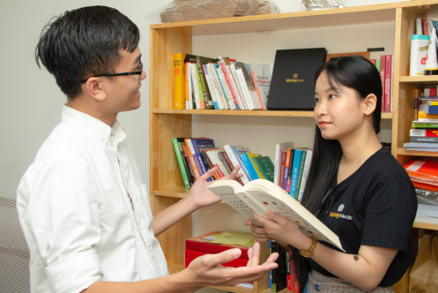Written by Russ Gadzhiev, PhD
“If you look into someone’s face long enough, eventually you’re going to feel that you’re looking at yourself.” – Paul Auster
“Love is about bottomless empathy, born out of the heart’s revelation that another person is every bit as real as you are.” – Jonathan Franzen
“We need to teach our children empathy and care and love and communication and social responsibility in preparation for adulthood.” – Maya Soetoro-Ng
Let me ask you something, dear reader.
Do you want to have more friends?
Do you want to be more successful in life?
Do you want to be understood by other people?
Do you want to get rid of this feeling of loneliness that sometimes all of us are having?
Finally, do you want to be a happy person?
If you responded yes to at least one of these questions, then you need to read this article. In this article, we are going to talk about empathy – a trait of character that all of us must have to be successful and happy in life.
First, let me remind you what empathy is.
Empathy is an important part of emotional intelligence – the ability to understand one’s feelings and emotions as well as being able to understand and relate to the emotions of people around you. People who have empathy can understand the experiences and feelings of other people. When people have empathy, it means that they are kind to each other. They understand each other and there is bound to be a productive and genuine friendship between them.
Emotional Empathy
Scientists have distinguished two types of empathy. The first time of empathy is so-called – “emotional empathy,” which means that as a person you can understand and feel the emotions of other people. When you see that people around you are going through hardship, you want to help them find a way out of their predicament as you feel distressed as well.
Cognitive Empathy
The second type of empathy is so-called cognitive empathy. If you possess cognitive empathy that means that you can intellectually understand why someone around, you feel a certain way. You are also able to identify the sources of your own emotions, especially negative ones.
So, empathy is a prerequisite for happiness and fruitful social interactions. It is interesting that we all have the same levels of empathy as human beings. And there are many things that can make us more empathetic or less empathetic. That is why some people have more empathy than others. And that is why some people are happier and more fulfilled than others. So here are some of the tips that will help you to be more empathetic.
Be Positive and Focus on What You Have in Common
Unfortunately, as human beings, we are very prone to generalizing, labelling things, and putting them into boxes. We do the same with people around us. People judge others around them because of various cultural stigmas and stereotypes. So instead of judging people around you, make a conscious attempt to connect with them.
Remember, if you exclude people from your life only because they look different, speak a different language or are indifferent to you in some way, it means that you are judging the book by its cover. It means that you are excluding people who could have a positive influence on you and even change your life in some important ways.
Any person who enters your life is there for a reason. So, remember to do your best to get to know them better and resist the temptation of judging them. The less you judge, the more you will be liked by others. The less you judge, the more others will want to connect with you.
Be an Active Listener and Share Your Thoughts and Emotions
Yes, empathy means being able to understand others. But it also means connecting to others. And connecting to others means being a little bit more vulnerable, being willing to share and being heard as well. If you want to build an empathetic relationship with someone, it is crucial to listen and share your thoughts to be heard as well. By confiding in someone you show them that you trust them. And if these people see that you trust them that means that they will trust you too. Empathy is not a one-way interaction. It is giving to someone and taking from someone too.
Find a Cause and Work to Help Others
When we do something that helps others, it makes us more human and empathetic. It forces us to expand our horizons and instead of dividing us, it unites us. So, if you are not sure what cause you can join – do not worry – there are many of them. Go and teach as a volunteer. If you speak English, you can help people who are struggling with their English to learn faster. Or you can go and help in the local church or museum. By helping others, you will be able to heal yourself, and become more empathetic and be happy.
Expand Your Social Circle and Make New Friends
Yes, it may sound strange but even scary but try to reach out to others. If you are on a tram and there is something sitting next to you, turn to them and ask them how their day has been. You will be surprised but when people see that you are curious about their life, they will be willing to share.
If you are not sure whether you can start a conversation with strangers, there is a more “comfortable” option. We all have colleagues at work, right? So why don’t you ask a colleague at work if they want to have a coffee with you or even have lunch? Avoid phrases like “Let’s have coffee someday.” Instead, try to agree on a specific date so that your encounter can happen. You will be surprised how much your colleague at work can share with you and how they can contribute to your happiness.
Also, make people around you aware that you are available for personal interactions. Think about how you can compliment them to start a conversation. Also, do not forget to respect whatever boundaries that people are setting when interacting with you. It is especially important in order not to be annoying and repelling people.
Diversify Your Friends and Acquaintances
There is another safe option of reaching out to other people. You can start following people with diverse backgrounds on social media. For example, these people may be of a different race, religion, or even political views. Being exposed to their differences will help you understand them better.
You can also make a conscious effort to put away your phone when someone else is speaking and indicate with your body language that you are listening to them. Try and be as attentive as you can to the people around you.
It is understood that most of us are living our lives in a bubble. If you look around, you will notice that you are surrounded by people who act and look the same way as you. The people around you look like, they have the same income as you, they spend money on the same things as you and even have the same educational background. As a result of being surrounded by the same people, you have a severe shortage of empathy. It is difficult for us to connect with others. Therefore, it is difficult for us to be happy. And if we are not happy our productivity is diminished as well.
In this article, we have concluded that, fortunately, empathy can be developed. All you need to do as to acknowledge the biases that you hold against people who are different from you and make a conscious attempt to eliminate them. It is also worth noting that empathy is an integral part of emotional intelligence (we have talked about it a lot in our Shiminly articles). Not only will you make yourself happier and more fulfilled, but you will also make new friends along the way. So, embrace empathy and you will see its positive effects on your life immediately!
Russ Gadzhiev obtained his PhD in history and politics from University of Melbourne. He also holds a master’s degree in International Relations from Moscow State University of International Relations, a top-ranking diplomatic school. Russ is a strong education professional with a history of working in the higher education sector of Australia and effectively communicates with learners from diverse cultural backgrounds. He is enthusiastic about teaching and mentoring, writing, curriculum development, research, information management and public speaking. He is fluent in Russian, English, Spanish and Portuguese.








































